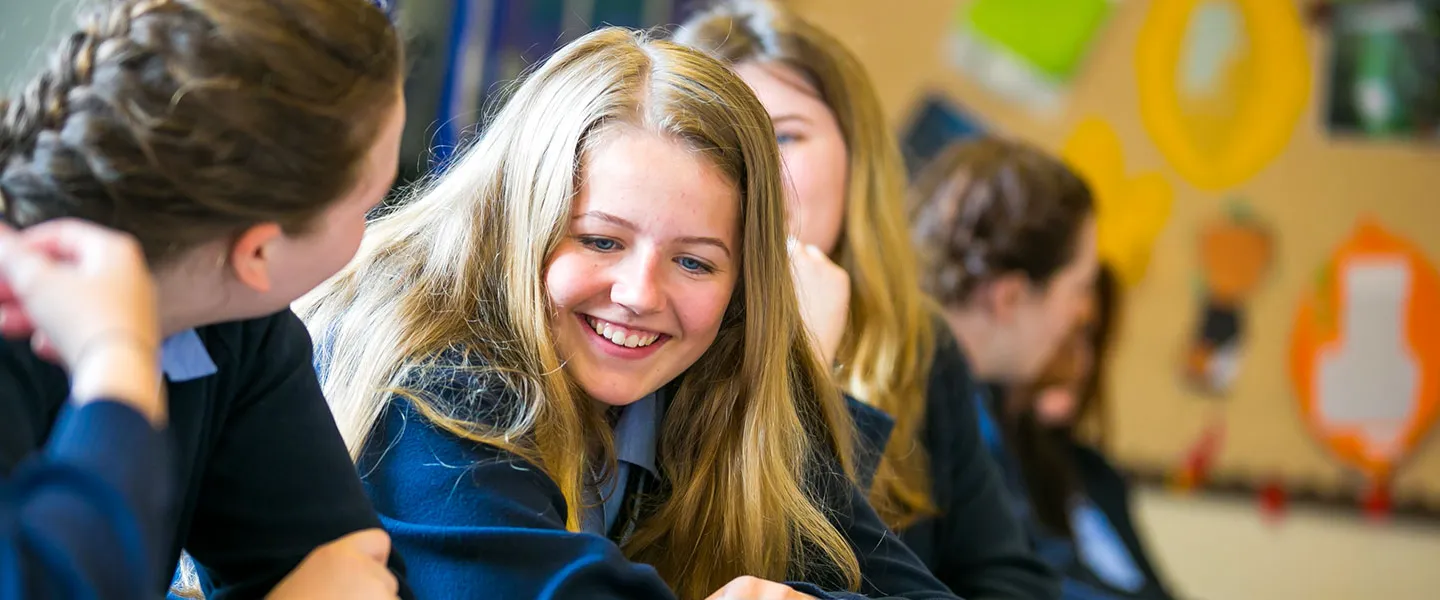Studying for Exams for a Religious Studies GCSE
Are you interested in exploring the world’s religions and how they’ve shaped various societies over the course of history? Studying for your religious studies GCSE at Cheshire’s The Queen’s School is fulfilling for many. Our religious studies department seeks to help pupils understand the contribution of religion to human culture as well as religious, ethical, philosophical, and cultural responses to contemporary issues. Students will investigate the fundamental questions of life raised by religion while making well-informed judgements concerning religious beliefs and their alternatives. Learn what to expect from our challenging curriculum and what careers beyond clergypersons are available in this fascinating field.
What Is Religious Studies? What’s Included in Our Curriculum?
Religious studies is required for Years 7-9 to help young people understand the links between religion, philosophy, ethics, and human culture. Topics of study include an Introduction to Religion, The Life of Jesus, A Study of Buddhism, A Study of Islam, and A Study of Judaism. The Queen’s School also offers the subject as a GCSE option for Years 10-11 and as an A-level. A-level religious studies explore topics such as Free Will and Determinism, Utilitarianism, Situation Ethics, and Virtue Ethics. Our curriculum focuses on learning about religion and learning from religion in equal measure. Many of our religious studies pupils find the coursework informative and enjoyable and go on to study theology at the university level. Other overlapping university subjects of interest include medicine, philosophy, English literature, biology, and maths. Whatever you choose to study, a religious studies GCSE sets you up for success.
What Careers Benefit From an Education in RE or Theology?
As one might expect, theology and religious studies graduates may pursue careers in the church and other religious organisations. However, they may also opt to work for a charity, school, or even the national or local government. Various employers prize the research, critical thinking, teamwork, and communication skills learned through religious studies. Religious studies students are also valuable to employers because they can appreciate different perspectives and empathise with people’s motivations for their actions. Popular careers to pursue with a theology or religious education background include:
- Chaplains
- Missionaries
- Youth workers
- Charity workers
- Diplomats
- Foreign service workers
- Civil Service administrators
- School teachers
- Community development workers
- Religious rights advocates
- Social workers
- Political consultants
- Human rights advocates
- Activists
- Archivists
- Museum curators
- Historians
- Journalists or media correspondents
- Public policy advisors
- Community center directors
- Solicitors
- Mediators
- Writers
The Top Theology Influencers to Follow for Inspiration
The Internet can be an excellent way to spread light and love to millions of people through inspirational messages of hope and understanding. Clergypersons of all faiths have become social influencers in the modern era, exploring many topics of interest to our religious studies students. Some of the most influential theology social media accounts to follow include:
- Christian Today (the UK’s largest online Christian news provider)
- The Church of England Newspaper (one of the world’s oldest newspapers)
- The Catholic Herald (Britain’s leading Catholic magazine)
- The Diocese of Oxford (Bishop Steven’s blog)
- Femelle Soul (a Christian blog and platform for women)
- Rev. Jennie Hogberg (Church of Sweden priest, Stockholm)
- Rev. Chris Lee (Church of England priest, London)
- Adam Kelwick (Muslim chaplain, Liverpool)
- Rabbi Amir Ellituv (Manchester)
Study Tips to Help You Succeed on Your RE GCSE Exam
Pupils preparing to take their religious studies GCSE exam at The Queen’s School will be tested in moral issues, philosophy, Christianity, and Islam at the end of Year 11. Here are some practical tips for preparing for your religious education (RE) GCSE exam:
- Review key terms and concepts associated with various world religions, primarily Christianity and Islam. Flashcards are an excellent way to test your memory as you go through your coursework and syllabus.
- Analyse the importance of practising religious beliefs, as well as their purpose and impact on human culture.
- Venn diagrams can help you compare similarities and differences among various beliefs.
- YouTube offers videos on various religions that might be helpful to watch.
- View revision texts and past papers on the Internet for inspiration. With easy-to-read sections on Christianity and Hinduism, the BBC Bitesize webpage is a great place to start.
- Pay attention to the command words given in exam questions, so you give the exact response expected – read all exam questions very carefully!
How The Queen’s School Can Change Your Daughter’s Life
The Queen’s School is an independent schoolcatering to girls aged 4-18. We encourage our pupils to think independently, collaborate confidently, and aspire globally while knocking down gender stereotypes in all fields, including religious studies. Your daughter will thrive with our exceptional academics and extracurriculars. Our staff is committed to developing girls’ curiosity and creativity to inspire the next generation of leaders. If you’d like to learn more about the benefits of a girls’ school, please contact us directly. We would be happy to discuss our curriculum, registration fees, and Entrance Assessments to help you prepare for the next exciting step in your daughter’s education!
